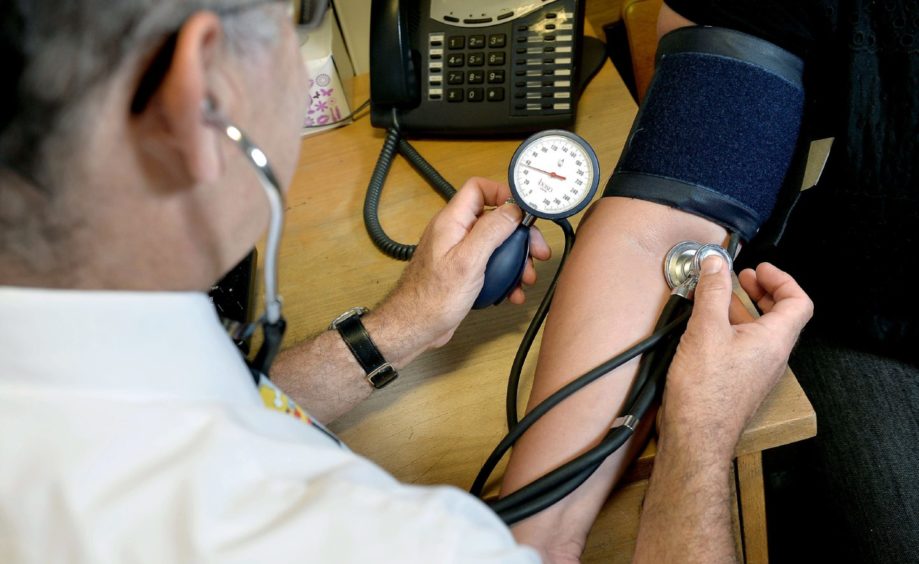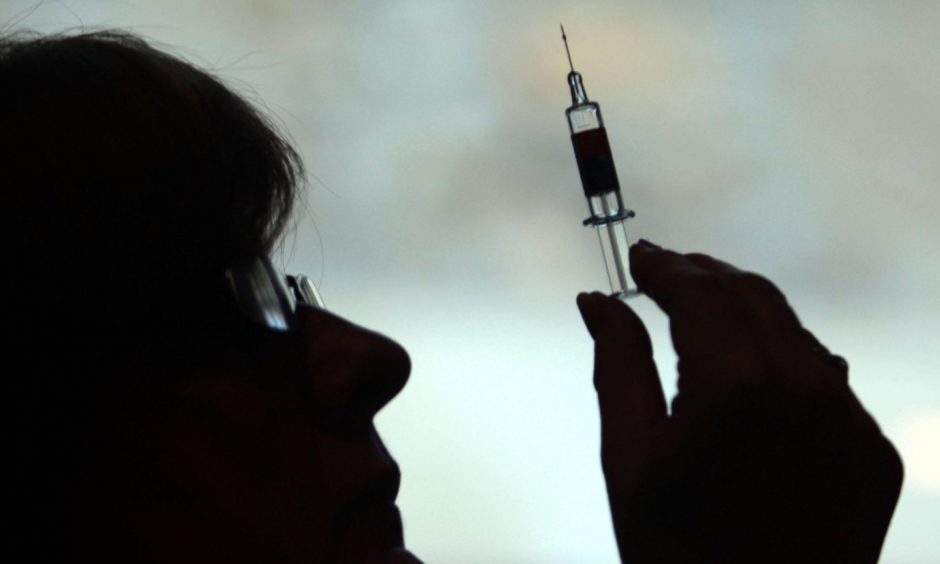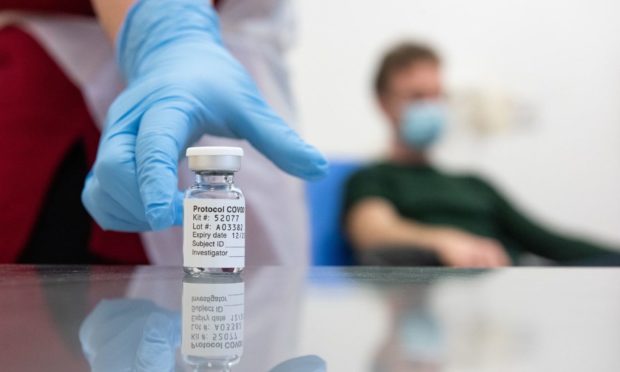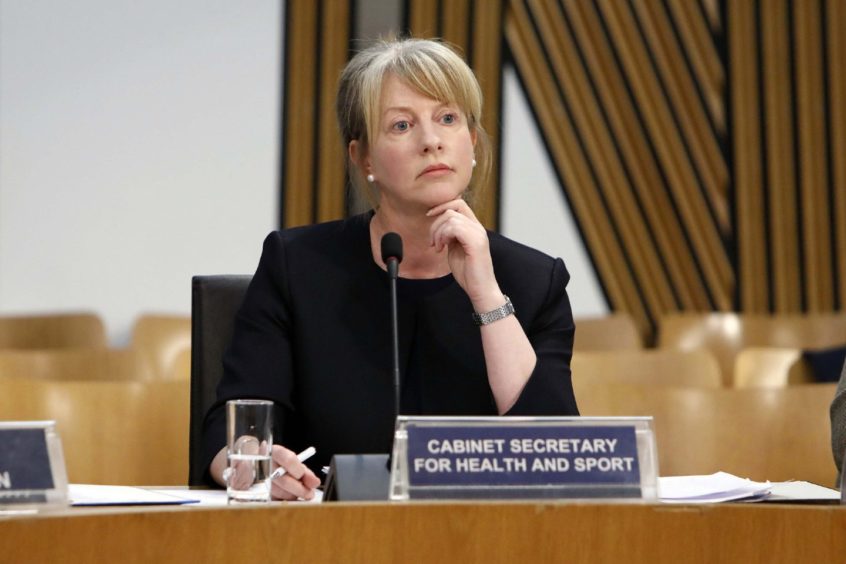GPs can successfully deliver the coronavirus vaccination across rural Scotland because they fought off centralisation plans, a leading doctor says.
Dr Iain Kennedy, secretary of the Highland local medical committee, said vaccine delivery in the region is currently on a “very strong footing” and that this “bodes extremely well” for the coming weeks, as the first patients get Covid-19 jabs.
But the Inverness-based GP suggested the outlook might not have been as positive if family doctors had not “stood firm” against a shake-up of the service.
The latest GP contract in Scotland, implemented in 2018, proved hugely controversial among rural doctors for several reasons, including the removal of autonomy, such as the desire to take responsibility for vaccines away from family doctors and hand it to health boards.
Highland GPs warned of dire consequences, including an increase in illness and death, if people in rural areas opted against immunisations because they were being told to travel longer distances, rather than be seen at their local practice.
The uproar led to the Scottish Government agreeing to retain flexibility in such areas, and Dr Kennedy said vaccinations in the Highlands have thrived since.
“It has been very telling to see how well Highland has done to deliver a very high uptake of flu vaccines this year,” he said.

“In fact, we have delivered more flu vaccines this year, in a shorter time period, than ever before.
“I have no doubt that this is as a direct result of Highland GPs taking a position where the majority of us wanted to keep being directly involved in giving immunisations to our patients, but also because we have worked extremely well with our NHS Highland colleagues, particularly community nurses, school nurses and midwives, to increase the uptake of flu vaccines to those who need it.”
Dr Kennedy said local GPs are expecting to become more heavily involved in the coronavirus vaccination programme when the AstraZeneca-Oxford type arrives in January.
He is confident it would run smoothly, because GPs remained in the driving seat.
“Vaccine delivery in Highland is on a very strong footing and we think this bodes extremely well for a successful Covid vaccine delivery programme,” he said.

“I do believe that if Highland GPs hadn’t stood firm on behalf of their patients and their practices, that we would not be in such a good position to deliver a successful Covid vaccination programme.
“And indeed I think there is no doubt that NHS Highland hugely welcome the fact that over 90% of our GP practices wish to be directly involved in helping the board to deliver this really important Covid vaccine programme.”
GP contract
Dr Kennedy was speaking after concerns about the implementation of the contract were raised by doctors from across Scotland at a GP conference last week, including in relation to the failure to supply practices with promised pharmacists, physios, mental health workers and nurses.
In Highland, it is understood new working arrangements with pharmacists and physios have proved successful, and there are also high hopes for new “community link workers”.
However, several other aspects of the contract plan, which was designed to free up GP time, have failed to materialise, including a promise that each practice would have a mental health worker, as well as new urgent care support.
Dr Kennedy said: “Many of our GP members in the Highlands, and indeed many GPs in Scotland, are beginning to see the GP contract of 2018 as having failed to deliver,” he said.
“And indeed the Scottish Government and the Scottish General Practitioners Committee have extended the roll-out of the contract for another three-year period.
“This is extremely disappointing for GPs in Highland but, in all honesty, comes as no surprise to us, as we never believed that the personnel were there in the first place to fill all these new roles.
“What we really hope for in Highland is that both the Scottish Government and our medical leaders will give us the flexibility to deliver the GP contract in a different way in Highland, so that our patients can receive the best possible services from their own GP practices.”
Government ‘absolutely committed to contract offer’
A Scottish Government spokeswoman said it is “hugely grateful” to GPs and healthcare workers who are delivering the seasonal flu vaccination programme.
She added: “The central aim of the 2018 GP Contract Offer is to focus GP time on complex patient care, by building capacity in the wider multi-disciplinary team without exposing GPs to more risk as employers.
“Whilst we share the disappointment in NHS Highland, as in a number of other areas, coronavirus has had an impact on the recruitment of multi-disciplinary teams, the Scottish Government remains absolutely committed to the contract offer.
“We doubled the Primary Care Improvement Fund to recruit multi-disciplinary teams from £55m to £110m this year.
“This investment is set to grow to £155m in the forthcoming financial year.
“We have, with the BMA, jointly agreed on the next steps for the multi-disciplinary team commitments made in the 2018 contract offer.
“Boards will have a contractual responsibility to provide multi-disciplinary support from April 2022, and those practices who continue to deliver services which are no longer their responsibility will receive transitionary support until these are transferred.”


